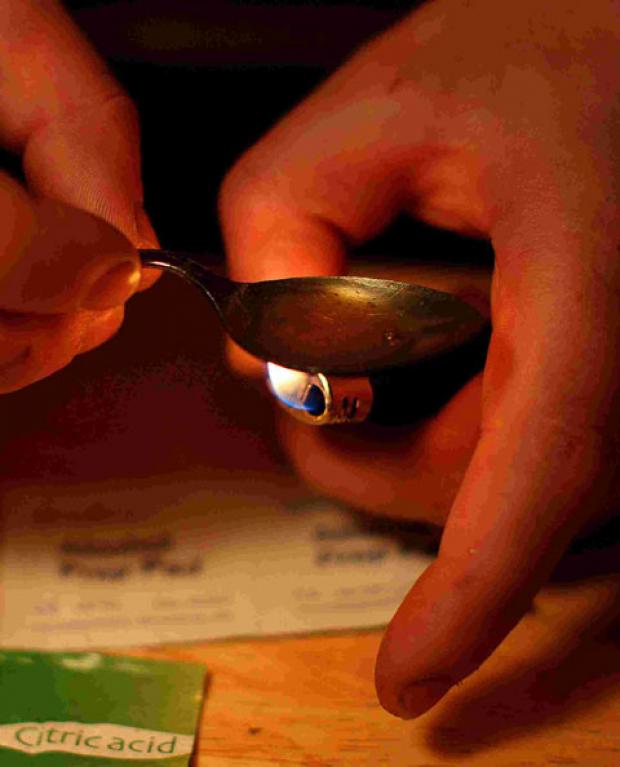When hearing the words ‘drug addict’, for most people certain stereotypes come to mind.
But it appears the stereotypes often associated with people battling a drug addiction couldn’t, in many cases, be further from the truth.
Experts claim that many people in respectable jobs, including teachers and nurses, are living in the city and across Sussex as ‘functioning addicts’ and hiding the truth from their colleagues, friends and family.
In 2012, nearly one in five drug addicts helped by the charity CRI in Brighton and Hove was a professional person – with 263 treated in total.
Pete Davies organises Brighton’s annual Recovery Walk and runs the Cascade Creative Recovery group for former addicts.
Last year he helped scores of professionals overcome serious addiction.
He said: “The stereotype is that all addicts are down and outers – but that’s not the case.
“In Brighton the problem runs much deeper than that. Drugs are everywhere here, right in the heart of suburbia.
“I know successful businessmen with heroin addictions, teachers too. I even know a policeman with a secret cocaine problem that is taking over his life.
“People just wouldn’t believe that someone in a good job might have a hidden drug problem – but in this city, addiction does not discriminate.”
Hidden problem
Mr Davies, a former addict himself, said many professionals in Brighton and Hove were keeping their problems hidden from their unsuspecting family and colleagues.
He said: “Shame is a great motivator for people to stay in addiction. You’d think it would work the other way round but it doesn’t.
“Most people, especially in high-powered jobs, would rather manage it on their own than risk the sack or their family finding out.”
David – not his real name – from Brighton is a recovering addict who previously worked in a middle management position.
Extended lunch
Despite battling a serious long-term cocaine addiction, he managed to stay in his job for five years before resigning to concentrate on overcoming his problems.
He told The Argus: “I was taking extended lunch breaks to go and meet my dealer and do drugs. I would come back every afternoon in a complete state but everybody seemed to turn a blind eye.
“Hardly anyone suspected I was a drug addict. To be honest, I don’t think it even occurred to them.
“I worked that bit harder to distract attention from myself, but eventually it got to the stage where it was becoming obvious and I had to leave.”
Functioning addicts
Daniel Gerrard, director of the rehab advice guide Addictionhelper, said Brighton and Hove was a “hotspot” for functioning addicts.
Statistically, his organisation receives more calls from nurses and teachers than all the other professions in the city put together.
Through a special intervention programme Addictionhelper, also works with a number of lawyers and a university lecturer.
He said: “We deal with some high-powered people in Brighton who have been secretly addicted to heroin for 20 years. Many of these are in high-stress jobs.
“Even though heroin is such a destructive drug, some addicts can live a fairly normal life.”
Heroin dose
In fact, Mr Gerrard said many addicted professionals actually needed a regular shot of heroin to keep them on an even keel.
He said: “They will manage their doses with care so they appear normal during the day.
“In many cases, they actually need heroin to appear stable and normal.
“No one around them suspects what is going on.
“These are people who still have a degree of control over their lives – but they are unable to escape their addiction.”
Serious addiction
Andy Winter, chief executive of the Brighton Housing Trust, runs the largest drug and alcohol treatment services in the city.
He said many drug-addicted professionals had “struggled to let go” of their younger days and now found themselves mired in serious addiction.
He said: “Often you’ll find that they took drugs at university with their friends where it didn’t seem like a problem.
“Then in their 20s, they carried on, while other people stopped doing them.
“By the time they reach their 30s, they are often doing them in large quantities, on their own, perhaps hidden from friends and colleagues. Sometimes they have moved on to harder drugs.
“Their addiction begins to take over their life.”
Professional settings
Mr Winter said there was “certainly an issue” with medical workers in Brighton and Hove struggling with drug addiction.
He said: “The health services are not always the best in dealing with the addictions of their staff, especially smaller private firms.
“It’s not just doctors and nurses though – there’s a problem with a number of professional settings in this city.”
He added that the pervasive drug culture in Brighton and Hove made it “particularly difficult” for people to get clean for good.
But the figures from CRI also revealed that hundreds of working people are struggling with substance abuse problems in other parts of the county. Read More…

